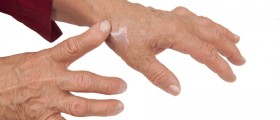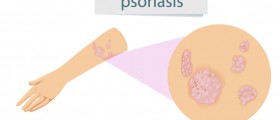
Rheumatoid arthritis is a non-contagious disease. It causes the development of abnormal or altered antibodies when the sufferer is exposed to an antigen or virus. The condition can lead to the generation of an inflammation of the joint lining. The cause of the condition is itself not fully understood. However, different theories have pointed to genetics, infections and endocrine factors as potential causes.
Symptoms of Rheumatoid Arthritis
When the disease develops, it might lead to symptoms that are common to several other unrelated conditions. One might suffer anorexia, fatigue, malaise, fever, weight loss and vague articular symptoms. This form tends to develop gradually. However, another form of the disease appears suddenly and can lead to simultaneous inflammation of the joints. Inflammation can occur in the wrists, knees, elbows and ankles. Rheumatoid arthritis can lead to stiff joints after periods of inactivity, particularly upon waking up.
Stiff, weak or painful muscles can all be symptoms of RA. In some cases, numbness and tingling in the feet or fingers might occur. Occasionally, rheumatoid arthritis can lead to an inflammation of the lungs, eyes or blood vessels. Sometimes, joint deformities and contractures might occur. Fingers can appear spindle-shaped and joints might be red or hot to the touch.
Treatment of Rheumatoid Arthritis
Treatment is mainly based around a combination of drug therapy, exercise and rest. Aspirin and other types of drugs are used in treatment. Among the drugs used are ibuprofen, naproxen and Diclofenac. These drugs are used in most cases and can provide immediate analgesic and anti-inflammatory effects. Salicylates are the primary type of drug used, due to their anti-inflammatory effects. Some might develop gastrointestinal toxicity, tinnitus or renal damage as rare side-effects of the drug therapy. This therapy might also interfere with platelet function. If this is a problem, enteric-coated Aspirin can be used.
Corticosteroids can also be used for short-term relief. The usage of this type of drug should therefore only be temporary, especially given the unfortunate side-effects that can occur as a result of corticosteroid usage. Physicians have recently begun to use disease modifying drugs that look to attack the disease aggressively. This can help to prevent joint damage. Methotrexate is one such drug. Side-effects of this type of treatment include mouth ulcers, nausea and abdominal pain.
Exercise is an important component when it comes to maintaining mobility in RA patients. In some cases, hot soaks, paraffin baths and whirlpool might help to lessen pain. Some severe cases of the condition might necessitate surgery in order to remove inflamed synovial tissue.















-Symptoms,-Diagnosis,-Treatment_f_280x120.jpg)

Your thoughts on this
Loading...